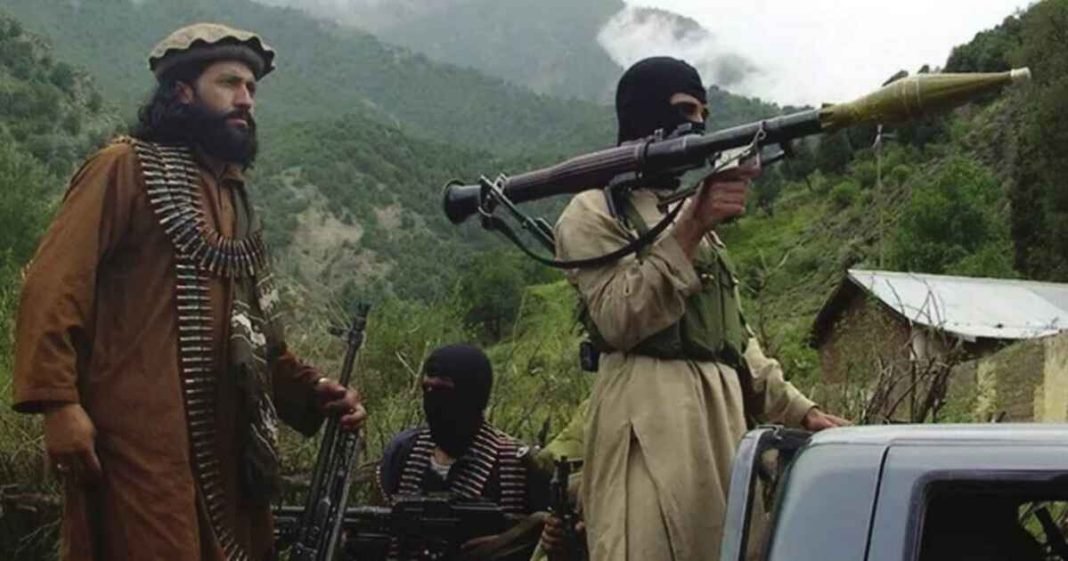Dr Rehman Ahmed
Pakistan finds itself caught in a complex security web, facing the continuous threat of terrorism emanating from across its borders. This challenge, predominantly fueled by the banned Tehreek-i-Taliban Pakistan (TTP) and its variants, has inflicted significant damage, particularly on the nation’s brave security personnel.
Addressing the External Nexus:
- Afghan Sanctuaries: The Taliban’s rule in Afghanistan has unfortunately provided a safe haven for the TTP, enabling them to regroup, plan attacks, and launch assaults on Pakistani soil. Pakistan has consistently voiced its concerns about this issue on international platforms, including the recent UN Security Council meeting where Ambassador Munir Akram voiced the need for an independent investigation into the TTP’s access to sophisticated weaponry, much of which originated from the US withdrawal from Afghanistan.
- Indian Involvement: Concerns have also been raised regarding India’s alleged support for the TTP. Pakistan has previously shared evidence with the UN highlighting India’s suspected connections to various anti-Pakistan militant groups operating in Afghanistan. While addressing this issue, diplomatic nuance is crucial. Pakistan must assert its stance against the use of Afghan soil for terrorist activities while avoiding unnecessary escalation with India.
Internal Strategies and External Collaboration:
- Persistent Diplomacy: While the external factors require international attention and cooperation, Pakistan needs to continue utilizing existing bilateral and multilateral channels to engage with the Taliban. The focus should be on persuading the Afghan authorities to either dismantle the TTP presence or effectively prevent them from attacking Pakistan.
- Strengthening Border Security: In tandem with diplomatic efforts, robust internal measures are also necessary. Enhancing border security and intelligence gathering can disrupt terrorist movements and prevent attacks before they occur. Investing in counterterrorism strategies and equipment for security forces is critical to ensure their safety and effectiveness.
- Building Local Support: Fostering cooperation with local communities along the border areas can create valuable partnerships in the fight against terrorism. By addressing grievances and providing development opportunities, these communities can become active participants in safeguarding their own well-being and national security.
A Delicate Balancing Act:
Navigating the labyrinth of terrorism requires a multifaceted approach. Addressing the external sanctuaries through diplomacy and international pressure is crucial, while simultaneously strengthening internal security measures. However, approaching this challenge with tact and caution is necessary. Accusations and escalations are unlikely to yield immediate solutions, while engaging in constructive dialogue and building trust with both the Afghan authorities and the international community can pave the way for a more effective and sustainable resolution.
The path forward demands unwavering commitment from the Pakistani state, coupled with a nuanced and strategic approach towards external partnerships. Only through collective action and a spirit of cooperation can the complex web of terrorism be dismantled and lasting peace and security be achieved.
The state has faced a challenge to deal with the rising terrorist threat throughout the year, with the frequent attacks causing major damage, especially to our security personnel. Most of these attacks have been traced to the banned TTP, or its Tehreek-i-Jihad Pakistan version. While it is mainly the state’s duty to handle terrorist threats regardless of their origin, the outcome of counterterrorism efforts can be adversely affected when militant groups have sanctuaries or supporters outside Pakistan’s borders. The state has long voiced its discontent with the safe havens given to the TTP in Afghanistan under Taliban rule. Now, it has also exposed India’s apparent role in backing the terrorist group. While addressing a recent UN Security Council meeting, Pakistan’s ambassador to the multilateral body Munir Akram said there was “clear evidence” the TTP was getting support from “our main adversary”, without naming New Delhi. He also demanded an international investigation to find out how sophisticated weapons ended up in the hands of the TTP. Most of this equipment seems to be leftovers the US-led military force abandoned in Afghanistan as it left before the Taliban takeover. The head of the UN Assistance Mission in Afghanistan endorsed some of Pakistan’s claims, especially the fact that “the Afghan de facto authorities have done too little to contain the TTP”.
Pakistan needs to persist in using multilateral platforms, as well as bilateral channels, to persuade the Afghan Taliban that either anti-Pakistan terror groups be eliminated, or they be stopped from launching attacks in this country. As for Indian involvement, the state has also raised this issue before. When the Western-backed regime was still in power in Kabul, military and civilian authorities had said they had sufficient evidence linking India to anti-Pakistan terrorist groups — including the TTP and Baloch separatist groups — active in Afghanistan. A dossier containing details of India’s malicious activities targeting Pakistan was submitted to the UN in 2020. The matter needs to be dealt with firmly, yet carefully. India must be told in clear terms that the use of Afghan soil for terrorist activities will not be accepted by Pakistan. Meanwhile, the Taliban must be informed that hostile third countries should not be permitted to use their country to harm Pakistan, or else bilateral ties will be affected.
Please, subscribe to the YouTube channel of republicpolicy.com
















